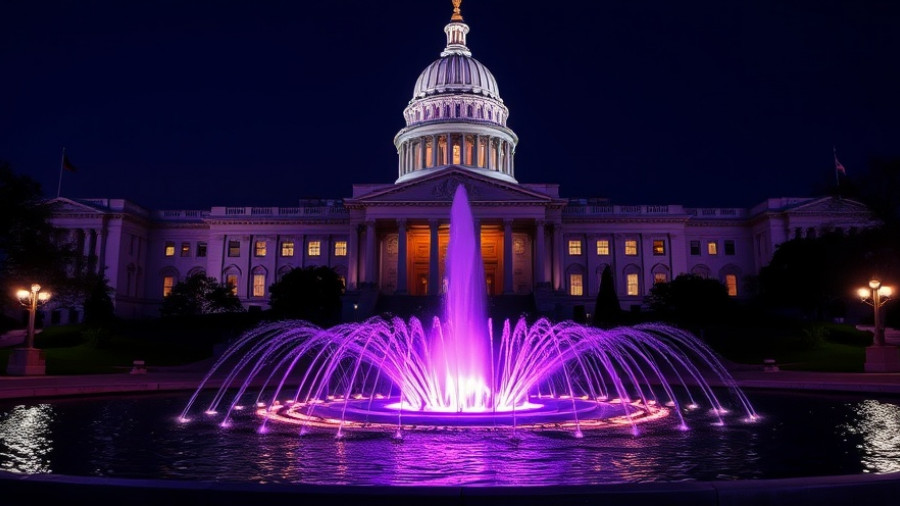
Pennsylvania Senate Passes Controversial Budget Proposal
In a contentious move, the Pennsylvania Senate recently passed a $47.9 billion budget proposal, drawing significant criticism from Democrats who label the plan as "unserious" and failing to properly address the state's needs. The party-line vote marks the 113th day since the state’s budget deadline of June 30, highlighting the ongoing divides in the Commonwealth’s political landscape.
Understanding the Divide: A Closer Look at Party Dynamics
Senate Republicans championed this latest proposal, insisting it meets essential obligations without imposing tax increases. Republican leaders, such as Majority Leader Joe Pittman (R-Indiana), asserted that the new budget reflects the needs of the Commonwealth, emphasizing a commitment to\nresponsibility through a 5% cut in legislative spending. They argue that their approach prioritizes essential services without falling back on higher taxes.
In stark contrast, Democratic leaders criticized the budget's implications on schools and social safety net programs. Governor Josh Shapiro called out the plan as a "gimmick," asserting that it does not fulfill the state's obligations to its most vulnerable citizens. The plan also fails to incorporate some of the financial strategies suggested in the larger $51.6 billion budget he proposed earlier in the year, which included measures to legalize adult-use recreational marijuana—expected to generate approximately $800 million in revenue.
Consequences of Inaction: The Social Impact of Budget Cuts
Critics argue that a failure to adequately fund essential programs could have dire repercussions for Pennsylvania residents. The House's earlier proposal, which passed with bipartisan support, included vital increases for educational funding, amounting to $565 million directed toward the state’s most underfunded schools, and $1.3 billion for the Department of Human Services. Democratic Minority Leader Jay Costa (D-Allegheny) echoed similar concerns, urging for a collaborative budget approach that encompasses the diverse needs of all Pennsylvanians.
Moreover, understanding the real-life implications of these funding decisions is crucial. Residents benefitting directly from these programs—teachers, students, and vulnerable families—could face reduced resources, impacting their well-being and opportunities for advancement adversely. Lack of funding in education and social services hinders Pennsylvania's long-term economic health and stability.
Looking Ahead: What’s Next for Budget Negotiations?
With budget negotiations ongoing, the future is uncertain. How the Senate’s plan will be received by the House remains to be seen, and parties have already begun to show signs of reluctance to engage in bipartisan dialogue. Elizabeth Rementer, a spokesperson for House Majority Leader Matt Bradford (D-Montgomery), pointed out that Republicans have a responsibility to bridge the gap and seek substantive solutions that cater to the Commonwealth's needs effectively.
The coming weeks will likely be pivotal as certain members of the legislature call for a true compromise. Key stakeholders, including legislative and community leaders, need to heed the call for collaboration. It's crucial for them to gather in meaningful discussions to reach a consensus that respects the diverse economic and social fabric of Pennsylvania.
Engagement and Action: A Call for Informed Citizenship
For Pennsylvania residents, understanding these budgetary proceedings isn’t just about politics; it's about the real-life implications that affect everyday lives. Engaging with local governance, attending town hall meetings, and voicing opinions can empower citizens to influence outcomes effectively. The state’s future rests not only in the hands of its lawmakers but also in the actively engaged citizenry that demands transparency and accountability.
The torch is now passed to citizens who can advocate for serious deliberation around fiscal policies that align with the community's needs. As discussions continue, staying informed is paramount to ensuring that the budget does not overlook essential services vital for the state's prosperity.
 Add Row
Add Row  Add
Add 




Write A Comment